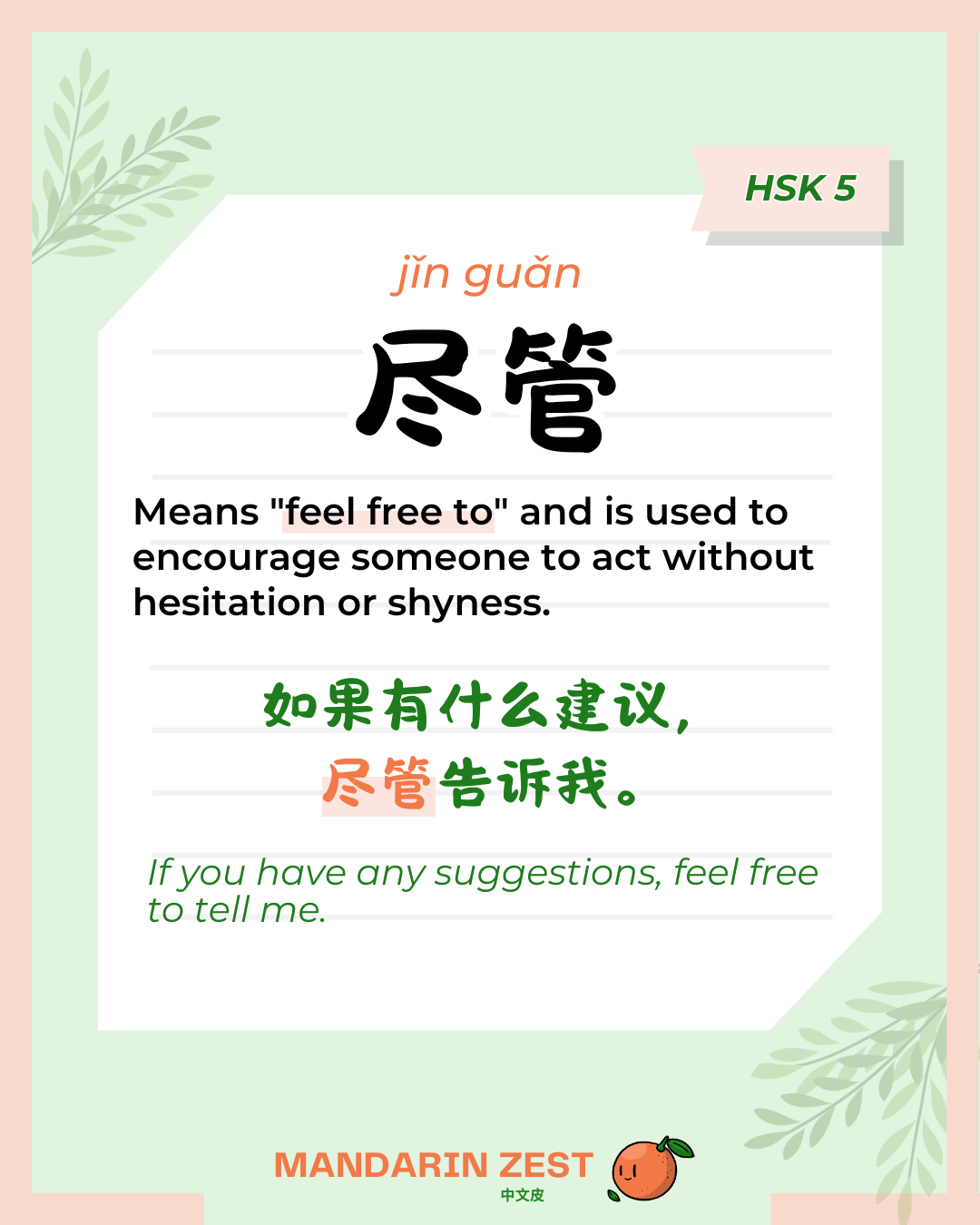尽管 (jǐnguǎn) is an adverb in Chinese that means "feel free to" and is used to encourage someone to act without hesitation or shyness. It conveys a sense of permission or reassurance, making it suitable for informal and friendly contexts.
Sample Sentences
尽管说,你想吃什么?Feel free to say what you want to eat.
尽管尝试,不要害怕失败。Feel free to try; don’t be afraid of failure.
想要什么尽管拿,不用客气。Take whatever you want; no need to be polite.
In a Text
这个周末我们打算在我家举办一个小型聚会。大家尽管来,不用准备任何东西,我会准备好吃的和饮料。如果你有特别想吃的东西,尽管告诉我,我会尽量安排。
另外,聚会从下午三点开始,你们可以尽管晚一点到,没关系。想带朋友的话也尽管带,越多人越热闹!希望你们都能来玩得开心!
尽量 (jǐnliàng): As much as possible; to the best of one’s ability (See article).
This weekend, we’re planning to host a small gathering at my place. Feel free to come, and you don’t need to bring anything—I’ll prepare the food and drinks. If there’s something special you’d like to eat, feel free to let me know, and I’ll try to arrange it.
Also, the party starts at 3 PM, but feel free to come a bit later—it’s no problem. If you want to bring friends, feel free to bring them along. The more, the merrier! I hope you can all come and have a great time!




